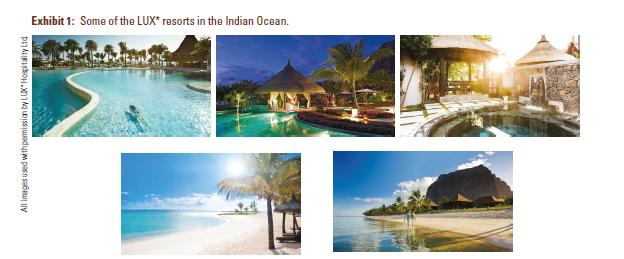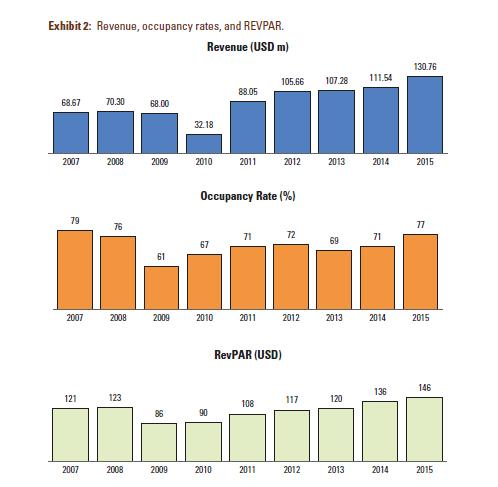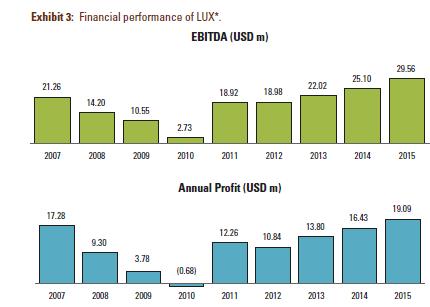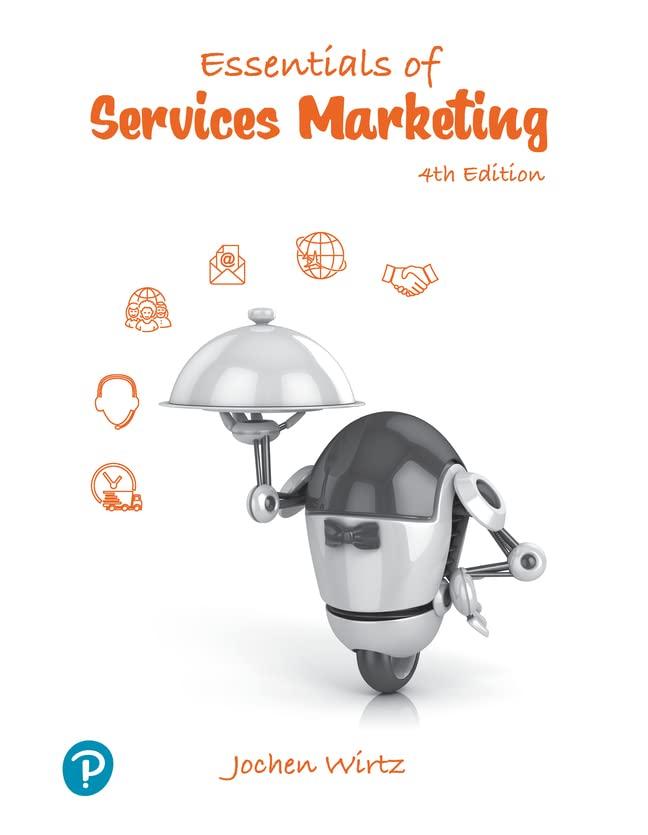W ith its headquarters in Mauritius, the LUX* hospitality group operates a portfolio of eight resorts and
Question:
W ith its headquarters in Mauritius, the LUX* hospitality group operates a portfolio of eight resorts and a private island in the Indian Ocean ( Exhibit 1 ). The brand promises guests a celebration of life through its new value proposition—luxury resort hospitality that is “Lighter.Brighter.”
What is the “Lighter.Brighter” hospitality? Established luxury hotels had come to be associated with stiff-upperlipped service and stuffy opulence. Lighter hospitality meant breaking away from these precedents to offer a more effervescent experience without compromising on the hotel’s upscale sensibilities. At the same time, LUX*
wanted to brighten up guest experiences. For example, the company significantly lowered the prices of items in the mini-bar to encourage guests to just take what they fancied and enjoy themselves. Such measures allowed LUX* to ensure that both guests and business would benefit from its operations.
The group’s resorts have been doing exceptionally well since its launch in 2011. Within a short span of time, LUX*
has successfully transformed its service culture. The group has seen 16 consecutive quarter-on-quarter improvements in its financial performance. The group’s resorts also enjoy a higher occupancy rate than the industry average in the destinations where they operate (measured quarterly by the Market Penetration Index, which compares the hotel’s occupancy against its competitive set). The group’s financial performance is reflected in the multiple accolades it has won for service excellence. These include the “Indian Ocean Leading Hotel” award for LUX* Maldives from World Travel Awards, the “Best Resort Hotel Mauritius” award for LUX*
Belle Mare from International Hospitality Awards, and the “Reunion Island’s Leading Hotel” award for LUX* Ile de la Réunion from World Travel Awards.
THE DARK AGES
However, things were not always this rosy. Before LUX* was launched in 2011, the group was known as Naiade Resorts, and the company suffered from poor financial health. None of its hotels were on the list of top 10 hotels on TripAdvisor in their geographic competitive sets. To top it off, the Naiade brand lacked clarity. Its brand name was used for nine different properties ranging from three to five stars, creating an unclear positioning in the minds of consumers. The problems in its positioning became apparent when the global financial crisis struck in 2008–2009, causing a large drop in occupancy and room rates ( Exhibit 2 ). The group’s troubles culminated in 2011 with a criminal case involving the high-profile murder of an Irish hotel guest.
Having witnessed prolonged economic turmoil and a criminal case, the motivation and morale of hotel employees were unprecedentedly low. Financially, the impact of these troubles cumulated in a downward trajectory in the company’s performance from 2008 to 2010 (Exhibit 3). The company reported a loss in 2010.
After hitting rock bottom, the company’s management had to move fast, and Naiade Resorts achieved a turnaround within a very short span of time. By mid-2011, Naiade Resorts saw an improvement in its service, and this quickly translated into improved financial performance.
Since then, the company has witnessed substantive and consistent service culture improvement and financial performance growth. How did the group manage this turnaround so quickly?


STUDY QUESTIONS
1. What were the main factors that contributed to LUX*
Resorts’ successful service revolution?
2. What key challenges did LUX* face while carrying out its transformation? How were they addressed, and what else could have been done?
3. What are the next steps that LUX* should take to cement its strong service culture, continue service innovation, and maintain its high profitability?
Step by Step Answer:






